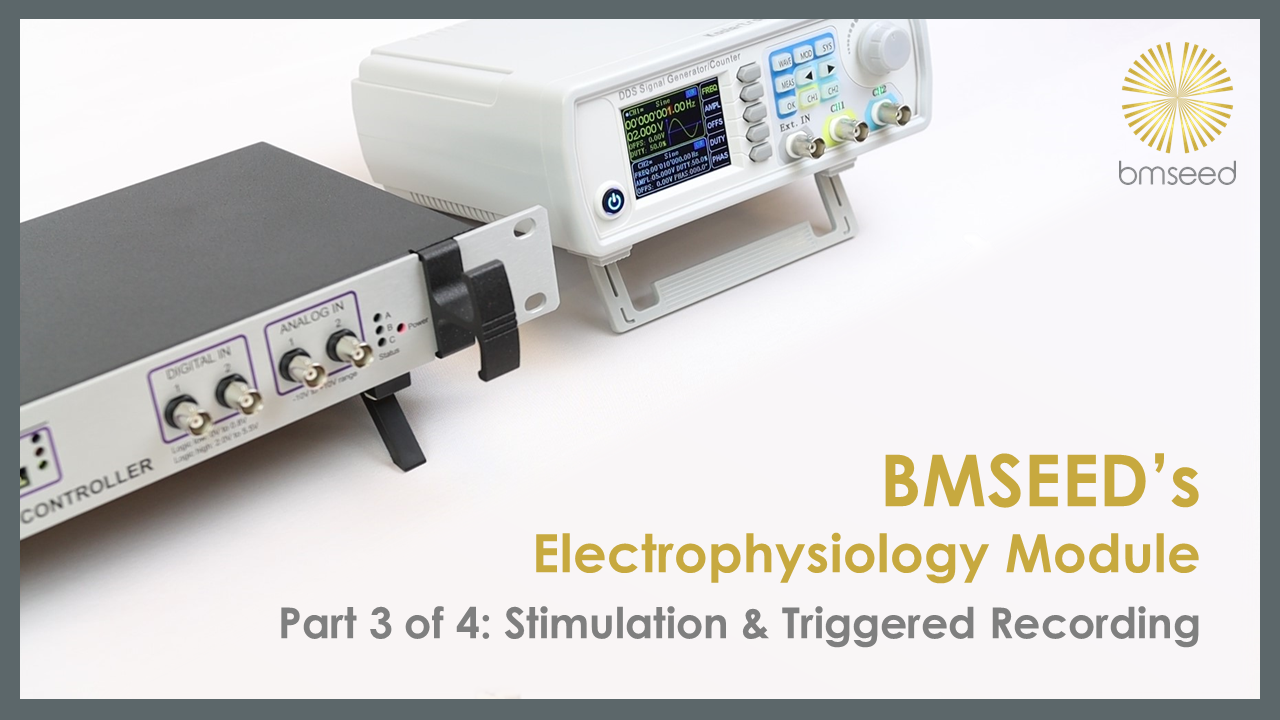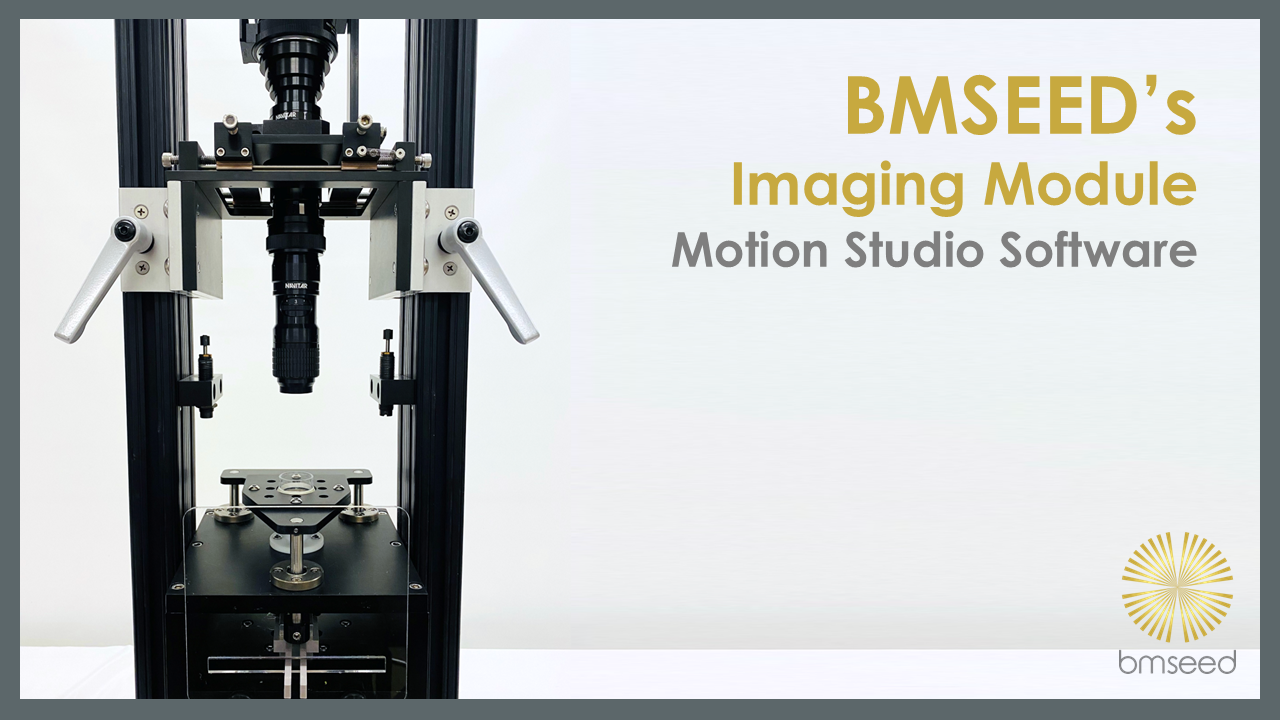BMSEED Videos
A curated selection of multimedia content showcasing BMSEED's innovative technologies and their applications in biomedical research. Explore demonstrations of our MEASSuRE platform, which integrates microelectrode array electrophysiology, cell stretching, and imaging, as well as insights into our stretchable microelectrode arrays (sMEAs). These videos provide visual explanations of our products' functionalities, benefits, and real-world applications, serving as valuable resources for researchers, educators, and professionals interested in advancing their understanding of BMSEED's contributions to the field.
MEASSuRE Videos
MicroElectrode Array Stretching, Stimulating, und Recording Equipment
BMSEED’s MEASSuRE
Reproduce cellular biomechanics with electrophysiological recording & stimulation to assess cell health & function real-time
BMSEED’s MEASSuRE Models
How to choose between BMSEED’s three MEASSuRE models (Mini, Premium, & X) for your specific research needs
BMSEED’s Electrophysiology Module
Low-cost recording & stimulation controller for up to 120-channel glass or stretchable microelectrode arrays
sMEA Videos
Stretchable MicroElectrode Array
BMSEED’s Stretchable MEAs
Benefits, applications, & user experiences
What Are Stretchable MEAs?
Reproduce cellular biomechanics in vitro to more accurately represent in vivo behavior
How to Choose Which MEA Is Right for You?
View BMSEED’s MEA portfolio.
6-Well Stretchable MEAs & Stretchwells
High-throughput, multimodal platform
Tutorial Videos
Electrophysiology Module
BMSEED’s Electrophysiology Module
Part 1 of 4: Equipment Setup
Hardware setup of BMSEED’s electrophysiology module using a 60-channel electrophysiology interface board (EIB), i.e., what needs to be done before your cells are ready for recording/stimulation on BMSEED's glass or stretchable MEAs.
BMSEED’s Electrophysiology Module
Part 2 of 4: Recording
How to prepare BMSEED's glass or stretchable MEAs for impedance measurements and recordings using the Intan RHS Recording & Stimulation controller and BMSEED's 60-channel electrophysiology interface board (EIB).
BMSEED’s Electrophysiology Module
Part 3 of 4: Stimulation & Triggered Recording
How to use BMSEED’s Electrophysiology Module for delivering stimulation to cells or tissues via the electrodes of glass or stretchable MEAs with triggered recording.
BMSEED’s Electrophysiology Module
Part 4 of 4: Remote Control with TCP
How to remotely control BMSEED’s Electrophysiology Module using Transmission Control Protocol (TCP) commands for real-time data acquisition and stimulation.
Tutorial Videos
Mechanics Module
BMSEED’s Mechanics Module
Part 1 of 6: Software Setup
This video describes the software setup of BMSEED's mechanics module for the MEASSuRE system from software installation to hardware-software checks.
BMSEED’s Mechanics Module
Part 2 of 6: MotionLab Overview
This video gives an overview of the MotionLab software for BMSEED's mechanics module. MotionLab controls the VCA of the MEASSuRE cell stretcher to perform precise and repeatable stretches by controlling the stretcher's position, velocity, acceleration, force, and oscillation.
BMSEED’s Mechanics Module
Part 3 of 6: Safety Checks
This video describes the safety checks required for BMSEED's Mechanics Module using the MotionLab software.
BMSEED’s Mechanics Module
Part 4 of 6: Impulse Stretch
This video demonstrates a pathological impulse stretch using the Mechanics Module of BMSEED's MEASSuRE system. An impulse stretch is a single stretch usually performed at high strain and strain rate to induce injury to the cells or tissue.
BMSEED’s Mechanics Module
Part 5 of 6: Cyclic Stretch
This video demonstrates a physiological cyclic stretch using the Mechanics Module of BMSEED's MEASSuRE system. A cyclic stretch is a repeated stretch usually performed at low strain and strain rate for chronic experiments.
BMSEED’s Mechanics Module
Part 6 of 6: Create Macros
This video describes how to create a custom macro in the MotionLab software for a specific cell stretching pattern.
Tutorial Videos
Imaging Module
BMSEED’s Imaging Module
Motion Studio Software
This video gives an overview of the Motion Studio software for BMSEED's imaging module. Motion Studio captures images and videos during the stretch motion of cells/tissues on the MEASSuRE cell stretcher.


















